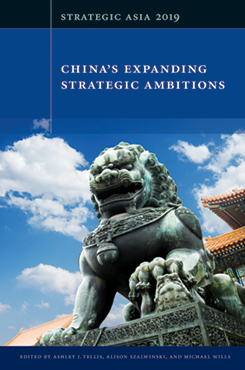China's Role in Reshaping the International Financial Architecture
Blunting U.S. Power and Building Regional Order
This chapter explores how China’s efforts to reshape the international financial architecture fit within a larger grand strategy to blunt U.S. financial power and build constraining financial leverage over China’s neighbors.
Executive Summary
MAIN ARGUMENT
The rise of China marks the first time in centuries that the world’s largest economy will not be English-speaking, Western, democratic, liberal, or market-driven. The country’s security anxieties as a rising power—one that faces both the risk of confrontation with the U.S. hegemon and the risk of encirclement by wary neighbors—will shape its international economic and financial strategies. To deal with the U.S., China has pursued blunting strategies against U.S. financial power. It has supported monetary diversification and the creation of parallel payment and credit rating institutions to reduce its vulnerability to U.S. financial sanctions. To deal with its neighbors, China has pursued building strategies to enhance its financial leverage over them. It has promoted a renminbi zone, new financial institutions, and infrastructure investment that together foster asymmetric interdependence.
POLICY IMPLICATIONS
- In the short term, China’s efforts to build constraining leverage over its neighbors could lay the foundation for a sphere of influence unless the U.S. both re-engages regional multilateral economic processes and multilateralizes some of China’s own bilateral efforts such as the Belt and Road Initiative.
- Over the medium term, China’s efforts to duplicate the substructure of the international financial system may provide sanctioned states an opportunity to escape U.S. financial pressure while reducing Chinese vulnerability to U.S. financial sanctions.
- Over the long term, China’s effort to promote monetary diversification, bypass the dollar, and promote its own currency and payments systems also could reduce its vulnerability to U.S. financial sanctions.
Rush Doshi is the Brookings-Yale Postdoctoral Research Fellow at the Brookings Institution.
Strategic Asia
The Strategic Asia annual edited volume incorporates assessments of economic, political, and military trends and focuses on the strategies that drive policy in the region. Learn more about Strategic Asia.



